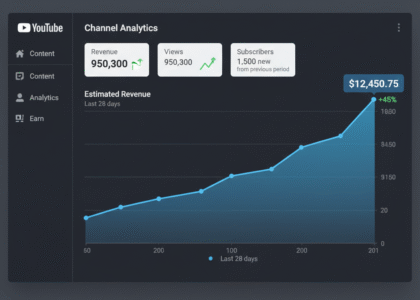The presidency of Donald Trump had a significant impact on the stock market, sparking debates about its long-term implications for investors. Understanding the future of stock returns in the context of Trump’s policies and rhetoric offers valuable insights for savvy investors navigating a volatile market. This blog post explores the factors that shaped the stock market during Trump’s tenure and what they mean for future investment strategies.
The Trump Effect on the Stock Market
Tax Reforms and Corporate Earnings Future of Stock Returns
One of the hallmarks of Trump’s presidency was the 2017 Tax Cuts and Jobs Act (TCJA), which slashed corporate tax rates from 35% to 21%. This move was a boon for corporate earnings, directly influencing stock valuations. While these tax cuts propelled the market during his term, investors must consider whether these benefits are sustainable in the long term.
Deregulation and Business Confidence
Trump’s administration prioritized deregulation across various industries, including finance, energy, and healthcare. This fostered a business-friendly environment, leading to increased confidence among corporate leaders. However, future administrations may adopt contrasting policies, creating potential challenges for investors reliant on Trump-era deregulation benefits.
What the Future Holds for Future of Stock Returns

Sector-Specific Opportunities Future of Stock Returns
Some industries flourished under Trump’s policies:
- Energy: The rollback of environmental regulations benefited oil and gas companies. Investors should monitor how shifts in energy policy under subsequent administrations affect this sector.
- Technology: Despite regulatory scrutiny, technology stocks soared, driven by innovation and consumer demand. This trend is likely to persist, but investors should remain vigilant about antitrust regulations.
Market Volatility and Political Rhetoric Future of Stock Returns
Trump’s often unpredictable statements and actions created periods of heightened market volatility. Moving forward, investors should brace for similar market reactions tied to political developments, emphasizing the importance of diversification.
Investment Strategies Post-Trump Era Future of Stock Returns
Focus on Diversification
Diversification remains a cornerstone of any robust investment strategy. By spreading investments across sectors and asset classes, investors can mitigate risks associated with political shifts and market volatility.
Monitor Policy Changes
Investors should keep an eye on legislative changes that may alter the economic landscape. Policies on taxation, trade, and infrastructure will continue to shape the market’s trajectory.
Leverage Stock Market Analysis Tools
Using advanced stock analysis tools like Stock Rover and TradingView can help investors identify profitable opportunities and make informed decisions. Check out our in-depth reviews on these platforms at GetCashVibe for actionable insights.
The Role of International Trade

Trade Wars and Global Markets
Trump’s trade policies, particularly the U.S.-China trade war, had far-reaching effects on global markets. The imposition of tariffs disrupted supply chains, impacting industries like agriculture, technology, and manufacturing. While some companies adapted by relocating production, others faced profit margin pressures.
Looking ahead, investors should assess how evolving trade relationships affect multinational corporations and global ETFs.
Emerging Markets Opportunities
Trump’s policies prompted a reevaluation of emerging markets, particularly those less reliant on Chinese trade. Investors seeking diversification may find opportunities in countries that benefited from the trade realignments.
Navigating Political Cycles for Investment Success

Learn from Historical Trends
Stock markets often react strongly to political leadership changes. Historically, markets have performed well during periods of divided government, where legislative gridlock prevents extreme policy shifts. This dynamic may stabilize returns in the future, regardless of political affiliation.
Long-Term Perspective
Short-term market fluctuations tied to political events should not deter long-term investment strategies. Adopting a patient approach allows investors to capitalize on compounding returns and emerging growth sectors.
Conclusion
President Trump’s influence on the stock market left a lasting impression, from tax reforms to deregulation and global trade dynamics. Understanding these factors equips investors with the tools needed to navigate future uncertainties. While political shifts are inevitable, maintaining a diversified portfolio and staying informed about policy changes can help secure steady returns.
Discover more tips on achieving financial freedom! Explore GetCashVibe today and take control of your finances






